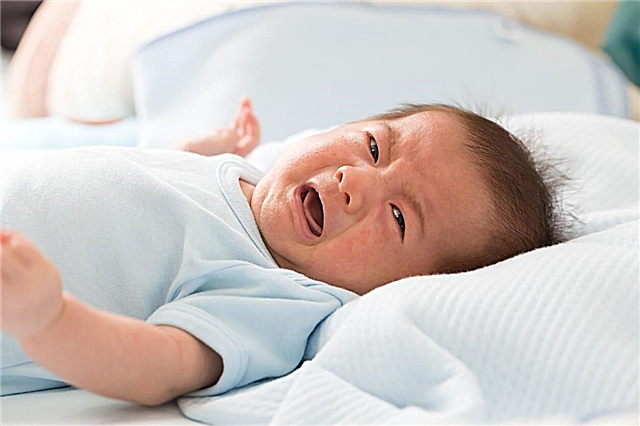Our children are like sponges. Therefore, it is very important to be attentive and follow the words that you say to your baby. Some of the phrases you drop by accident or in the heat of an argument can hurt and affect their self-esteem and future success. What speech patterns should be avoided when communicating with a child?

- Comparison with others
Phrases: "Look how quickly Dima buttons his coat"; “Polina already knows how to use the pot, but for some reason you don’t”, “Learn from your brother - he brings only fives from school”.
Why is it wrong?
Adults mistakenly believe that in this way they motivate the child to new achievements. But instead of support, the child gets doubts that his parents love him. What if they like the neighbor girl Polina more? Or maybe my mother loves my older brother Dima much more than me? Along with fear comes the desire to take revenge on a more successful “rival”: to pull the pigtail or knock while no one sees.
Correcting the error
The child develops at his own pace, according to temperament and other personality traits. Compare your baby to himself. Keep an achievement log for this, where you can record each of his successes. Looking at past victories with your child, you push him to new achievements.
- Excessive praise
Phrases: “You are the smartest (successful, handsome, capable” ...); "Where is Leshke before you."
Why is it wrong?
We readily believe that you have something to praise your baby for. The trouble comes when you give compliments just like that, without good reason. First, the child can become an arrogant person. And secondly, the baby gets used to light praise and becomes dependent on the opinions of others. And in kindergarten and school "for beautiful eyes" will not be praised.
Correcting the error
Praise not the baby, but his behavior and real efforts. Instead of a phrase "You are the most talented in kindergarten" say: “You have painted a wonderful picture. Flowers on it are as if they were alive. "
- Scary predictions
Phrases: "Don't run - you'll break your legs"; "Do not grimace - you will remain so"; "If you don't sleep during the day, you won't grow up."
Why is it wrong?
Psychologists say that from such phrases the child remembers only the second part: "you will break it", "you will stay", "you will not grow up." Very soon, mother is surprised to discover that her formerly lively and curious baby suddenly became timid and insecure. After mother's "parting words", the child makes a disappointing conclusion: in this terrible world, danger lurks at every step.
Correcting the error
Do not make negative predictions, but interest the child in the desired behavior: "If you sleep in the afternoon, you will gain strength and be able to play longer in the sandbox." or "If you eat vegetables and fruits, you will become fast and agile and you will become faster on a scooter."
- Devaluation of efforts
Phrases: "You are doing wrong (slowly, sloppily ...)"; “Let me do it myself”; "Don't touch the phone (remote control, designer ...), you'll break it again."
Why is it wrong?
A kid is not born as an artist, designer or builder. Only practice and mistakes give him the opportunity to learn. With such phrases, you make it clear that he is clumsy and can not do anything. As an adult, the child no longer wants to realize himself in a drawing circle or a sports section. By the way, at a certain age, the baby goes through a period of "myself", during which such phrases can even cause a serious scandal!
Correcting the error
Not only successes, but also mistakes give the child life experience and develop self-confidence. Explain that they learn from mistakes: "Did not work out? Try again".
- Manipulation
Phrases: "You will soon bring me to the grave with your behavior"; "I exhausted all my nerves."
Why is it wrong?
Wanting to achieve obedience or stop loud screaming, the older generation actively manipulates the baby. Perhaps for a while he will calm down, frightened, as if because of his running around, my mother really did not get sick. However, this can help once or twice, and then the child will stop taking complaints seriously and will not pay attention to the mother's really bad health.
Correcting the error
To cope with a disobedient fidget, shift his attention to other activities. Read your favorite picture book, play "silent", give a coloring book and pencils - there are many ways to calm your baby.
- Presenting an ultimatum
Phrases: “If you don't finish your porridge, you won't get a cake”; "If you don't take away the lego, I won't turn on the cartoon."
Why is it wrong?
The baby will quickly adopt such "barter" relations. Don't be surprised if, after a few years, you hear an ultimatum: “If you don’t give me a piece of cake, I won’t finish the porridge!”; "I'll read the book if you buy me that robot here!"
Correcting the error
Do not present ultimatums to the child, but put forward real demands, conditions that protect his health: “If you don’t wear rubber boots, you won’t go for a walk. There are puddles on the street. " Feel the difference. By this requirement, you say that you worry and care about the baby.
We also read:How to tell the child "CAN'T" / 5 alternative options to tell the child "NO"
- The threat to stop loving
Phrases: “I don’t need such a grimy child”; “Nobody likes such capricious children”; "I will not love you since you do not obey."
Why is it wrong?
The words that your own mother does not love you are the worst that a small child can hear. Perhaps you do not put a negative and threatening meaning in such phrases, but the baby thinks that no one needs him, and the mother's love still needs to be earned. He does not yet know positive ways, but the screams and whims of parental attention are very good. And don't forget about self-esteem, which depends on the opinions of significant adults.
Correcting the error
Love your child unconditionally, even when he screams, fights, breaks the rules. Do not criticize the personality of the baby, deal with his act.
- 20 phrases that you should never say to children - dangerous words that break a child's life
- 5 most unfair and offensive phrases from parents that children can hear
Whenever you say something to your child, think for a second and put yourself in his place. How would you feel if you heard these words? This is an easy way to understand what you can and cannot tell your baby.
Raising honesty in children. Practical advice on raising an honest child. How to educate honesty in children - https://razvitie-krohi.ru/psihologiya-detey/kak-vospitat-chestnogo-rebenka.html



